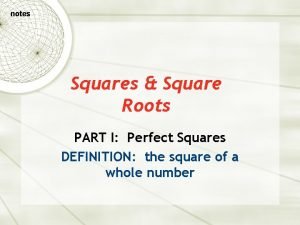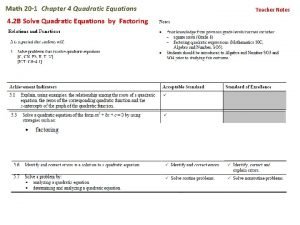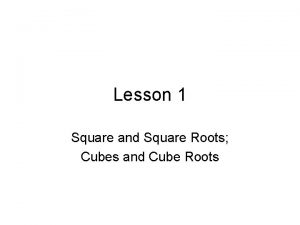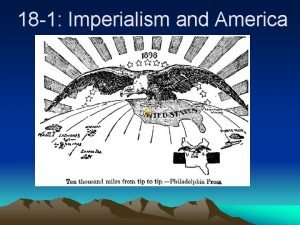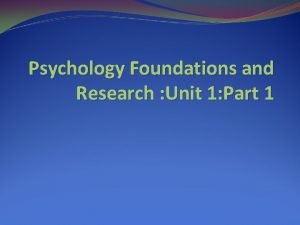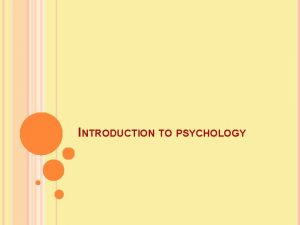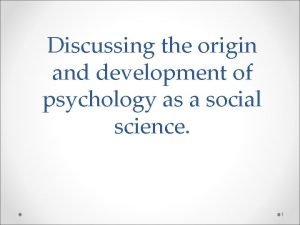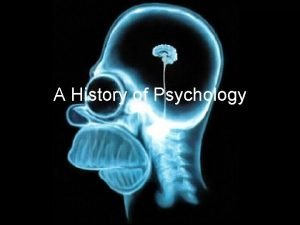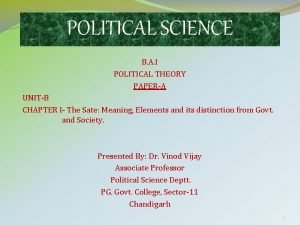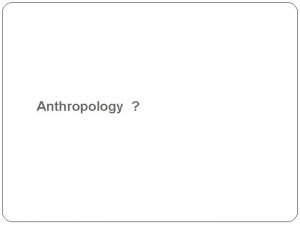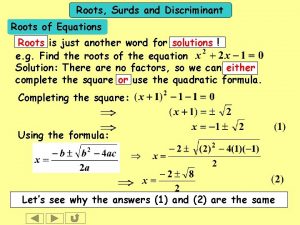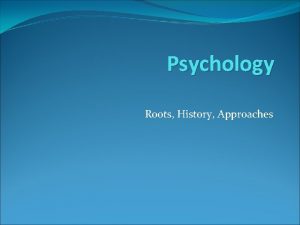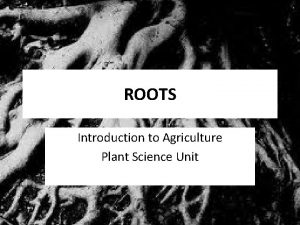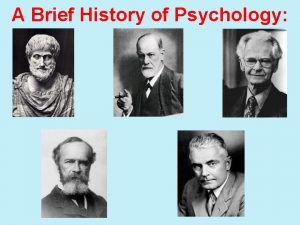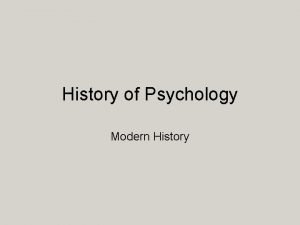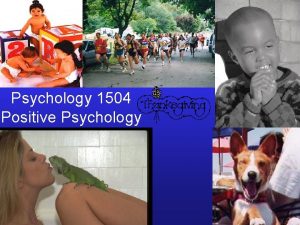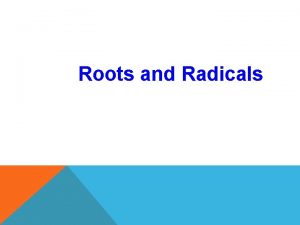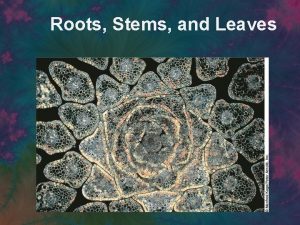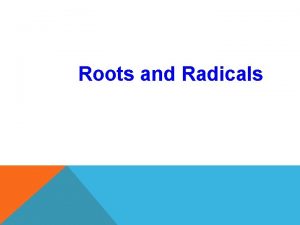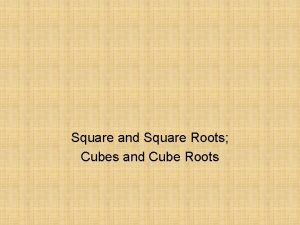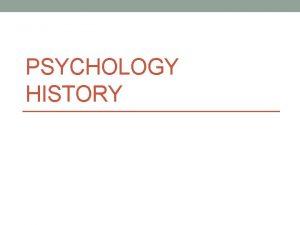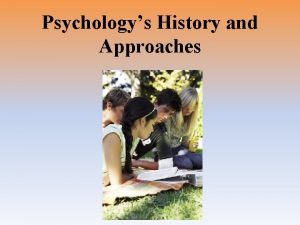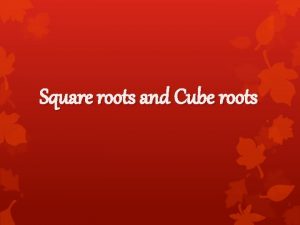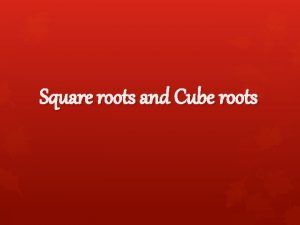Introduction Psychology Science and History Roots of Psychology















- Slides: 15

Introduction • Psychology, Science, and History

Roots of Psychology • Psychology as Psyche-logos • Philosophy – Epistemology – Ethics • Biology – The Path Through Physiology – Evolution and Psychology

Understanding Science I • The Image of Modern Science – The Newtonian Style – Positivism • Explanation – The Nomological Approach • The “Covering Law” Model • The Iron Law of Explanation • Weaknesses of the Nomological Approach

Understanding Science II • Explanation (continued) – The Causal Approach • Critique of the Nomological Approach • Looking for the Causal Structure of Nature • Weaknesses of the Causal Approach – The Pragmatics of Explanation

Understanding Science III • Theories: Explanations in Practice – Realism: Are Theories True? – Theories about Theories • The Syntactic Approach: Logical Positivism • The Semantic Approach: Theories as Models – Theory Change • The Rationality of Science

Understanding Science IV • Theory Change (continued) – Naturalistic Approaches • Thomas Kuhn and Paradigms • Evolutionary Epistemology • Themata – Methodological Approach: Falsificationism – Reduction and Replacement – Psychology of Science

Understanding Science V • Science as a Worldview – Particular and Universal Knowledge – Science as the “View from Nowhere” • Development of the View From Nowhere • Implications of the View from Nowhere – The Challenge of the Human Sciences

Psychology and Science I • Psychology without Science – Dualism – Folk Psychology • Can Psychology be a Science? – Why it matters: The Authority of Science

Psychology and Science II • Can Psychology be a Science? (cont’d) – Arguments from Imperfection – Arguments from Impossibility • You Can’t Eliminate the Mind • You Can’t Eliminate Points of View • You Can’t Eliminate Culture –Constitutive Rules: Cultures as Games –The Moral Dimension of Psychology

Psychology and Science III • Alternative Models for Psychology – Psychology as Engineering • Scientific Psychology: Mind as evolved Function • Applied Psychology: Expertise is Knowing What Works – Psychology as a Humanity • Naturwissenschaft (Natural Science) vs. Geisteswissenschaft (Human Science)

Psychology and Science IV • The Scientific Challenges to Psychology – The Challenge of Naturalism – The Challenge of Realism – The Challenge of Autonomy – The Challenge of Explanation • Waiting for Newton as Waiting for Godot?

Psychology and History I • History of Science – Reasons and Causes – Avoiding Whig History (Presentism) – Internal and External Histories of Science – Great Man vs. Zeitgeist Histories

Psychology and History II • Psychology in History – Mind: Discovered, Invented, or Constructed? • Discovery: Mind as Natural Kind • Invention: Mind as Artifact • Construction: Mind as Social Object – Mind in Religion

Psychology and History III • Options for Psychology – Is “Mind” a Natural Kind? – Do Minds Exist? – Does Mind Exist? • Mind as a Natural Construction • Mind as a Social Construction

Psychology and History IV • Historiography of Psychology – History of the History of Science and of Psychology – The “Old” and the “New” History
 Existence and uniqueness of square roots and cube roots
Existence and uniqueness of square roots and cube roots Is 125 a perfect square
Is 125 a perfect square Product of roots of quadratic equation
Product of roots of quadratic equation Perfect cubes list
Perfect cubes list Psychology has its roots in philosophy
Psychology has its roots in philosophy Vanessa jason biology roots answer key
Vanessa jason biology roots answer key The roots of american imperialism 1. economic roots
The roots of american imperialism 1. economic roots History and origin of science of psychology slideshare
History and origin of science of psychology slideshare Introspection method
Introspection method Structuralist school of thought
Structuralist school of thought Science fusion introduction to science and technology
Science fusion introduction to science and technology What is your favorite subject answer?
What is your favorite subject answer? Psychology greek roots
Psychology greek roots Political science and ethics
Political science and ethics Rapid change
Rapid change Hard science and soft science
Hard science and soft science

